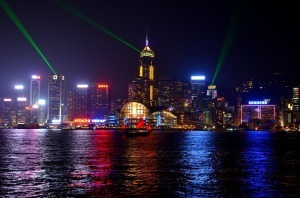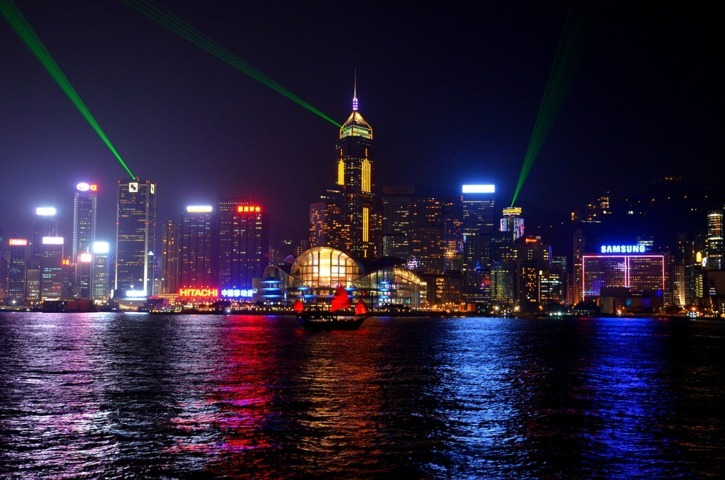 As the protests in Hong Kong slow down, the question remains: Will Hong Kong suffer major economic impacts with the demonstrations?
As the protests in Hong Kong slow down, the question remains: Will Hong Kong suffer major economic impacts with the demonstrations?
Analysts and experts agree that it all depends on how long the Umbrella Revolution lasts.
On Monday, October 6, students and civil servants went back to their offices and schools after the protestors lifted their blockade on the government offices, allowing government employees to resume work.
Protestors, however, promised to continue their civil disobedience, leaving experts and analysts to debate whether these protests will hurt Hong Kong’s economy.
The Umbrella Revolution
The protest entered its second week on October 4 and has shut down roads, disrupted transportation services and forced some business establishments to close temporarily.
Tens of thousands of Hong Kong students marched in the streets to call for more political freedom, particularly the right to nominate and elect the chief executive of Hong Kong’s government.
Under the current laws, China has to choose candidates for the chief executive post by an electoral committee that has oligarchs and tycoons from Beijing, among others, as its members.
Aside from asking for more political freedom, protestors also want Leung Chun-ying, the current chief executive, to step down from his post. Protestors contend that Leung prioritizes the interests of China rather than the interests of Hong Kong.
Leung, however, has refused to resign from his position.
The protest in Hong Kong is now being referred to as the Umbrella Revolution, since the protestors have been using umbrellas to shield themselves from the pepper spray used by policemen attempting to break up the protest. The umbrella has become the symbol of this ongoing conflict in civil disobedience.
The movement is being led by a group named Occupy Central with Love and Peace, headed by Benny Tai, a law professor at Hong Kong University.
Businesses are open but no clear resolution is in sight. Protests dwindled down on Monday after the Hong Kong government ordered protestors to allow businesses and government offices to resume operations. Some banks that closed in the past week have reopened, but the main thoroughfare to the Central Business district is still closed to motorists.
It remains to be seen whether the Hong Kong government will be able to keep protestors from the streets since there was no clear conclusion after a meeting of the students and government officials last Sunday afternoon.
“It’s clear there is still discrepancy between the expectations from both parties towards the dialogue,” Lester Shum, Vice Secretary of the Hong Kong Federation of Students told the press after said meeting.
The protestors have vowed to continue with their “Occupy Hong Kong” campaign until the government gives in to their demands.
Halted Economic Activity
Experts agree that Hong Kong’s economy will likely be hurt should there be more violent demonstrations in the coming days and weeks.
The World Bank, for example, said that the occupation of Hong Kong’s major thoroughfares by the protestors could affect the economic growth of both China and Hong Kong if the situation does not improve over time.
Sudhir Shetty, Chief Economist for the World Bank East Asia and Pacific region, noted that “at this stage, our best estimates…are that there isn’t as yet significant spillover to the broader Chinese economy, but it is still something that we and others will continue to watch.”
The ongoing demonstrations could hurt the economy of Hong Kong and mainland China, Shetty said.
“The impacts will be both on the Hong Kong Special Administrative Region itself, their economy, but also in terms of the broader impact on the Chinese economy,” Shetty added.
He stressed that the World Bank is also closely monitoring the events in Hong Kong just like the rest of the economic analysts are doing.
“As of now, what we anticipate is obviously a greater impact on Hong Kong SAR — so slower growth in 2014 than was being anticipated earlier.”
Meanwhile, there are some financial experts who have expressed faith that Hong Kong will not suffer major economic consequences due to the ongoing protests.
David Cook, an economics professor at Hong Kong University of Science and Technology, has said that previous protests in other countries failed to dampen the economic growth and momentum.
“I do note that neither the Occupy Wall Street demonstrations nor the London riots in 2011 had noticeable long-term impact on those financial centers,” he said.
“I am confident Hong Kong will continue to be a safe place to do business, and the rule of law will remain strong,” Cook added.
Similarly, credit rating agency Fitch Ratings noted that the demonstrations will not affect the credit standings of Hong Kong as long as the situation improves in the next few weeks.
“We don’t expect the protests to have a rating impact in the short term. It would be negative if the protests are on a wide enough scale and last long enough to have a material effect on the economy or financial stability, but we don’t currently see this as very likely,” stated Andrew Colquhoun, head of Asia-Pacific Sovereigns of Fitch.
Fitch Ratings gave Hong Kong a rating of AA+ with a stable outlook on September 15, just two weeks before the demonstrations in Hong Kong started.
Investors have been fleeing Chinese stocks that trade on the Hong Kong exchange due to the uncertainty resulting from the demonstrations. As such, the valuations of these Chinese equities, as well as ETFs such as iShares China Large-Cap ETF (NYSEArca: FXI) and SPDR S&P China ETF (NYSEArca: GXC), have become cheaper. The sell-off is somewhat irrational given that most of the business operations of these companies are in mainland China and are therefore not directly or fundamentally affected by the protest in Hong Kong. The situation has created an opportunity for those investors looking for bargains in oversold sectors such as tourism and retail.
Some businesses, however, have said that they are already feeling adverse effects from the recent demonstrations in the Central Business district.
The Hong Kong Federation of Restaurants and Related Trades, for one, indicated that their profits are likely to suffer a 30 percent decline this year.
The tourism industry of Hong Kong could also see a decline in numbers, as some scheduled tourists have already cancelled their trips to the country.
On Thursday, October 2, Beijing suspended the travel permits of citizens who are set to visit Hong Kong, which could affect the revenues of Hong Kong’s tourism industry. Visitors from mainland China provide approximately $38 billion of the country’s income.
Hong Kong Tourism Board spokeswoman Amy Lam also noted: “We do not have the number of visitors being affected. However, it is believed that some visitors will postpone or cancel their plans to visit Hong Kong for the time being.”
References:
http://www.reuters.com/article/2014/10/06/us-hongkong-china-idUSKCN0HV03J20141006
http://time.com/3471366/hong-kong-umbrella-revolution-occupy-central-democracy-explainer-6-questions/
http://time.com/3465269/occupy-hong-kong-central-business-community/
http://www.gmanetwork.com/news/story/382332/economy/finance/protests-could-hurt-hong-kong-economy-world-bank

